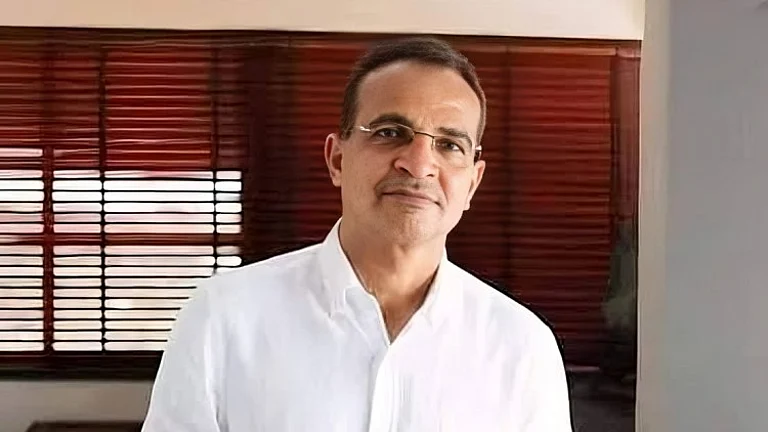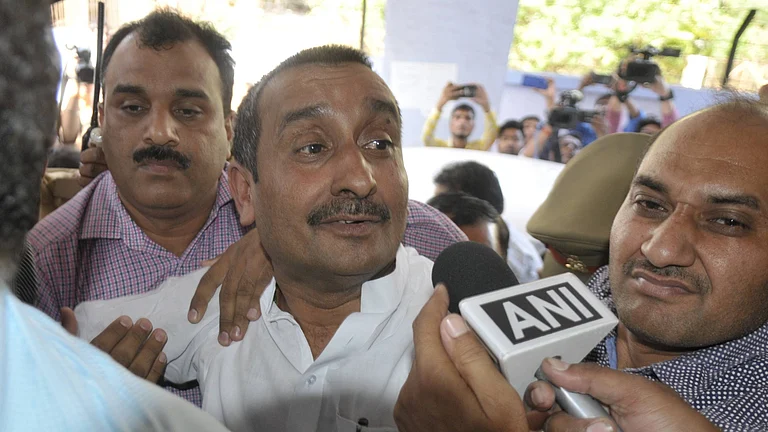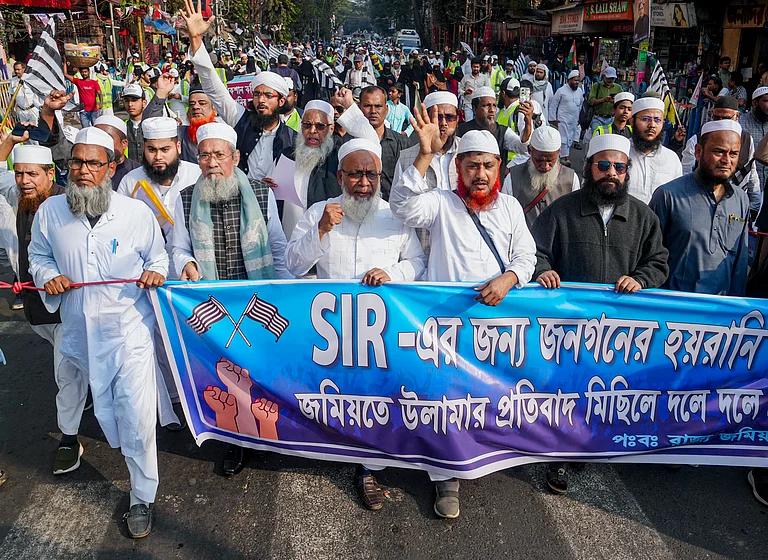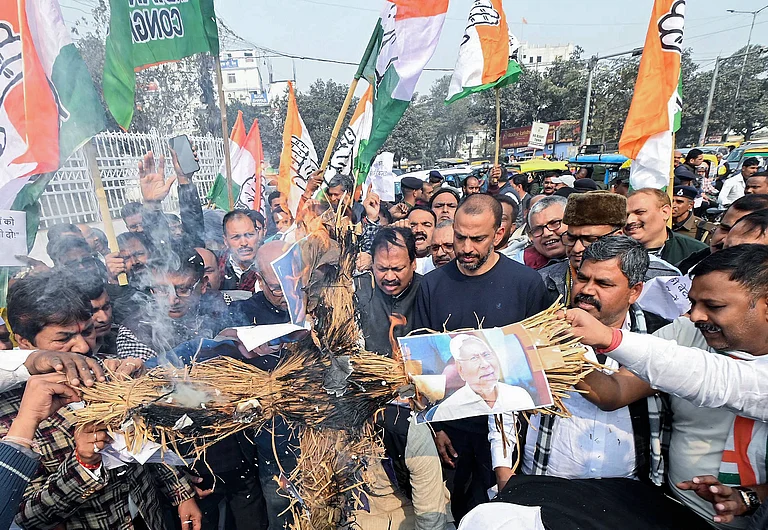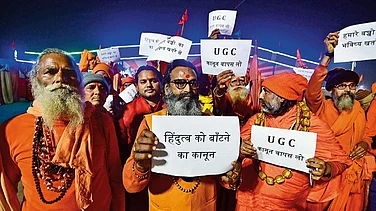At the stroke of midnight on August 15, 2024, 77 years after Indian independence, thousands of women from all walks of life demanded justice and true freedom from the struggles of patriarchy. The brutal rape and murder of a trainee doctor at Kolkata’s RG Kar Medical College and Hospital has shocked the nation to the core and forced everyone to speak up against the rising crimes against women and the systemic failure that has delayed justice not only in this case but in every other case in the past.
People across Bengal took to social media to discuss the case and question the role of the Mamata Banerjee-led state government in the ‘delay’ of justice for the victim. Several people also joined the junior doctors in the city, who have called for a ceasework until justice is served. Amid this, Rimjhim Sinha, a Presidency College pass-out currently engaged in research, called on women in Kolkata to ‘reclaim’ the night to symbolize breaking the shackles of patriarchy that still prevent women from going out at night safely.
"It was irresponsible of the girl to go to the seminar hall alone at night."Dr. Sandip Ghosh, former principal of RG Kar Medical College and Hospital

Sinha, speaking to Outlook India while leading the march from Jadavpur in Kolkata, said she was overwhelmed by the response she received. “The state government is trying to find justice through the system, but the system is failing, and we want a restructure and for those in power to ensure the case is solved impartially,” said Sinha. She added, “The fire that started from one post may reach everyone who needs it to stand against the powerful and corrupt. We want the government to provide a medium for us to reach out and listen to our demands.” She emphasized that it’s not just about one night for women to reclaim but about ensuring safety every time they leave their homes.
Debasree Gupta, a housewife holding a poster demanding justice, expressed her dismay that a state led by a woman has not taken proper steps in the case, noting she has yet to hear a statement from any of the women MLAs in Bengal. She added, “My niece is studying at a medical college, and this incident scares me, but it is not confined to that. The safety of women is compromised in every situation.”
Dr. Debaleena Dey, who has been practicing medicine in the city for several years, highlighted the lack of safety for doctors in hospitals and the absence of separate resting rooms. She added, “I am very proud to see the crowd tonight. I hope the government recognizes the need of the hour and not only ensures that the victim gets justice but that all women feel safe henceforth everywhere.”
A nursing student from Sundarban, who has come to Kolkata for her studies, told Outlook India that her parents are terrified after hearing about the incident, and the trust they had in sending her to a city far away for better opportunities seems to have been broken. Pratima Manna said that she receives frequent calls from her parents throughout the day asking about her safety. Manna, who had never spent a night away from her parents before coming to Kolkata, said, “Initially, doing night shifts was daunting, but over time I convinced myself and my parents not to worry. However, this incident has shaken me to the core; I feel scared again.” Manna was also holding posters and said she wanted the government to hear their demands and act on them.
Manna’s story highlights that incidents like this impact women in more ways than one. Women in this society are still “allowed” to study and achieve their dreams on terms and conditions set by their parents. Even if the concern comes from a place of protection, women are often forced to abandon their jobs and ambitions because society is not yet ready or safe for them, despite no fault of their own.
Dr. Dhiresh Chowdhury, who runs an NGO for underprivileged children and helps educate women from marginalized sections, recalls that when he was studying medicine and practicing in the early years of his career, the lack of facilities for doctors to rest or sufficient protective measures was a significant issue. He added that it is a shame that the problem remains unresolved even decades later.
The march on the streets of Kolkata was not limited to students and medical professionals but included young children and elderly individuals, some of whom needed support to walk. It was not just about one incident but voicing against the shared experience of many women in the country. Slogans during the march spoke out against systemic failure, the normalization of sexual assault, rape culture, and patriarchy.
A mob vandalized the RG Kar hospital and destroyed medical equipment while junior doctors were holding a peaceful march on the premises that same night. So far, police have made 25 arrests in connection with the case.
Kolkata Rape and Murder of Doctor: Case Details
The body of the woman doctor was found in a seminar hall at RG Kar Medical College and Hospital in Kolkata on August 9, where she had reportedly gone to rest after a 36-hour shift due to a lack of designated rest areas. A civic volunteer was arrested the next day in connection with the crime, but her autopsy report indicated the involvement of more people, as it revealed fractures, bruises, and 150 mg of semen collected from the vaginal swab.
On August 13, the Calcutta High Court handed the case over to the Central Bureau of Investigation, citing a lack of significant progress by the Kolkata Police after five days. The HC also questioned the police for initially labelling the case as a ‘suicide’ and asked the state government why they were attempting to ‘protect’ RG Kar Hospital principal Sandip Ghosh by transferring him to another state-run hospital shortly after his resignation.









